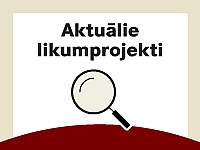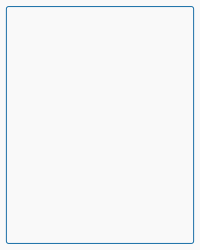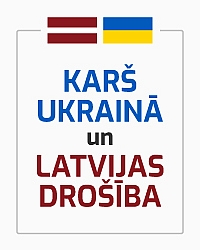DECLARATION
ON CONDEMNATION OF THE TOTALITARIAN COMMUNIST OCCUPATION REGIME IMPLEMENTED IN LATVIA BY THE UNION OF SOVIET SOCIALIST REPUBLICS
The Saeima of the Republic of Latvia recalls the appeal contained in its 22 August 1996 Declaration on Latvia’s Occupation and
supporting the opinion expressed in the Preamble of the Treaty Establishing a Constitution for Europe, which says that, while remaining proud of their own national identities and history, the nations of Europe are determined to transcend their former divisions and, united ever more closely, to forge a common destiny;
believing that now that Latvia has espoused the goals and principles set forth in the EU Constitution, it is essential for the European Union to comprehend the bitter experience of Latvia and to be fully aware of Latvia’s history as an integral part of the history of the entire united Europe;
referring to the Peace Treaty concluded between Latvia and the Russian Soviet Socialist Federative Republic in 1920;
referring to the Pact of Non-Aggression and Peaceful Resolution of Conflicts signed by Latvia and the Union of Soviet Socialist Republics (USSR) in 1932;
referring to the Convention of 1933 for the Definition of Aggression, according to which all signatories ban any form of aggression, be it direct or indirect, and which was also ratified by the Republic of Latvia and the USSR;
emphasizing that with the ratification of the above-mentioned multilateral and bilateral treaties, the Republic of Latvia and the USSR undertook, on an international level, to respect each other’s sovereignty and not to use war or threats of war in bilateral relations;
recalling the Secret Additional Protocols to the Non-Aggression Pact of 1939 concluded between Germany and the USSR, which, contrary to the existing provisions of international law and USSR’s commitments regarding Latvia, divided Eastern Europe into “spheres of interest” of these two countries;
recalling that after signing this Pact and its Secret Additional Protocols, the USSR occupied and annexed the Republic of Latvia; destroyed its constitutional regime; murdered, tortured, and deported hundreds of thousands of its citizens; unlawfully expropriated their property and carried out forced collectivization; persecuted people for their political convictions, religious beliefs and nationality; and attempted to destroy and russify the Latvian national culture by bringing into Latvia hundreds of thousands of USSR citizens;
emphasizing that in 1989 both Germany and the USSR internationally condemned the Secret Additional Protocols to the USSR – Germany Non-Aggression Pact, and both countries simultaneously acknowledged that these protocols had been concluded in violation of the existing principles of international law and that they interfered with the sovereign and independent rights of several other countries;
noting that the Russian Federation has not undertaken any activities to eliminate the consequences of occupation – such activities would have demonstrated its condemnatory attitude not only towards concluding these unlawful protocols but also towards the destructive consequences they caused;
taking as the basis the Declaration on the Restoration of Independence of the Republic of Latvia adopted by the Supreme Council of the Republic of Latvia on 4 May 1990, which has already declared that the USSR military aggression against Latvia which began on 17 June 1940 shall be regarded as an international crime;
considering that the crimes committed in Latvia by the USSR totalitarian communist occupation regime are part of the inhumane crimes committed by the 20th century’s totalitarian regimes and are not and cannot be subject to the statute of limitations;
noting that the crimes by the German National Socialist regime have been investigated and internationally condemned, and the perpetrators have been brought to trial while similar crimes committed by the USSR totalitarian communist regime have neither been investigated nor have received any international condemnation. Unless the crimes are investigated and the perpetrators are condemned and unless the consequences of the said crimes are eliminated, the conviction is maintained that the totalitarian communism regime is acceptable and that the implementers of this ideology can commit crimes against humanity with impunity and can keep what they have acquired as a result of the aforesaid crimes;
emphasizing that Latvia wishes to establish and maintain good neighbourly relations with Russia;
noting that true and enduring reconciliation between both countries will be possible only when the past international crimes are recognized, assessed and condemned and when the respective country, in accordance with the principles of international law, assumes responsibility for the violation of international law that it has committed;
being aware that it may be politically and morally difficult to come to such a recognition, Latvia respects the difficult, extended and thorough efforts of the state and the people of Germany in assessing their history since World War II, without which the integration of Europe would have never been possible to a such extent as now;
expressing the hope that Russia will continue its progress towards a truly democratic political system, an integral part of which is an accurate interpretation of history;
as well as believing that a condemnatory attitude of the European Union, especially of the European Parliament, and the EU member states towards the crimes committed by totalitarian communist regimes all over the world, especially in Eastern Europe, would strengthen democratic awareness throughout Europe and would encourage Russia to hear and to satisfy Latvia’s demands for compensating damages it has incurred;
noting that international condemnation of the USSR totalitarian communist occupation regime and the crimes against humanity committed by this regime does not preclude individual criminal liability of the perpetrators of these crimes;
confirms its efforts to restore historical truth and contribute to promoting international stability because it is convinced that political regimes which are based on an extreme ideology will threaten global peace and security, as well as the advancement of human rights and freedoms, as long as the criminal nature of these regimes is not fully disclosed and condemned.
The Saeima of the Republic of Latvia declares the following:
-the Latvian state condemns the USSR totalitarian communist occupation regime implemented in Latvia;
-the Latvian state condemns the actions of all those persons who participated in committing the crimes under the said regime;
- Latvia recognizes members of the national resistance movement as fighters for Latvia’s freedom and honours them;
- the Saeima of the Republic of Latvia undertakes to remove restrictions regarding access to documents that can prove the crimes committed by the USSR totalitarian communist regime and its repressive institutions.
The Saeima of the Republic of Latvia charges the Cabinet of Ministers with the following:
-to establish within three months a commission of experts to determine the number of victims of the USSR totalitarian communist regime, locate mass graves, compile all information about repressions and mass deportations, as well as to calculate the loss and damages inflicted by the said regime on Latvia and its population;
- to sign a special agreement between the Republic of Latvia and the Russian Federation which will specify mutual liabilities in covering material expenses and in providing assistance to repatriates and their family members who return to their historical and ethnic homeland;
- to continue maintaining claims against the Russian Federation regarding compensations for loss and damages caused to the Latvian state and its population during the occupation and the return to the Republic of Latvia of all archive materials (including the archive materials of the Latvian SSR State Security Committee) which have been taken out of Latvia;
- to ensure that the diplomatic representative offices of the Republic of Latvia disseminate this Declaration in foreign countries.
The Saeima of the Republic of Latvia calls on the Russian Federation:
- to democratically assess the past and to acknowledge historical facts, well known to the rest of the world, about Latvia’s occupation and the loss and damages inflicted upon the Latvian state and its population;
- to acknowledge the universally known fact of Latvia’s occupation by the USSR; to take into account the legal and political consequences arising from this fact and to honour the Peace Treaty concluded between Latvia and Russia on 11August 1920, which, in conformity with international legal norms, is still in force and which states that Russia forever abandons its claims to Latvia;
- to continue the repatriation of the military personnel of the Russian Federation Armed Forces and their family members in conformity with international agreements signed by Latvia and Russia;
- to acknowledge that the Russian Federation as the legal and political successor of the USSR is morally, legally and financially responsible for the crimes committed against humanity in Latvia, as well as for loss and damages caused to the Republic of Latvia and its population during the occupation, and, in compliance with the basic principles of international law, to fulfil its obligation to compensate the loss and damages caused to Latvia and its population as a result of unlawful activities;
- to fulfil its promises given to the Council of Europe, particularly the promise to return the archives and property taken out of the Republic of Latvia.
The Saeima of the Republic of Latvia calls on the Council of Europe and the parliaments and governments of European countries:
- to be consistent in their policies and legal relations regarding Latvia’s just political and legal claims based on the fact of Latvia’s occupation and its consequences, as well as the principles of international law;
- to assist Latvia in eliminating the consequences of occupation by rendering their political support.
The Saeima of the Republic of Latvia, recalling the Resolution of 1983 on the Situation in Latvia, Estonia and Lithuania, calls on the EU Parliament:
Within the framework of a policy for promoting democratic awareness, an integral part of which is also assessment and condemnation of all totalitarian regimes and their crimes,
- to establish an international commission for assessing the crimes of the USSR totalitarian communist regime;
- to support establishment of an international research institute to investigate the historical and legal aspects of the USSR totalitarian communist regime, summarize its findings and provide information to the international community.
Speaker of the Saeima: Ingrīda Ūdre
Riga, 12 May 2005










